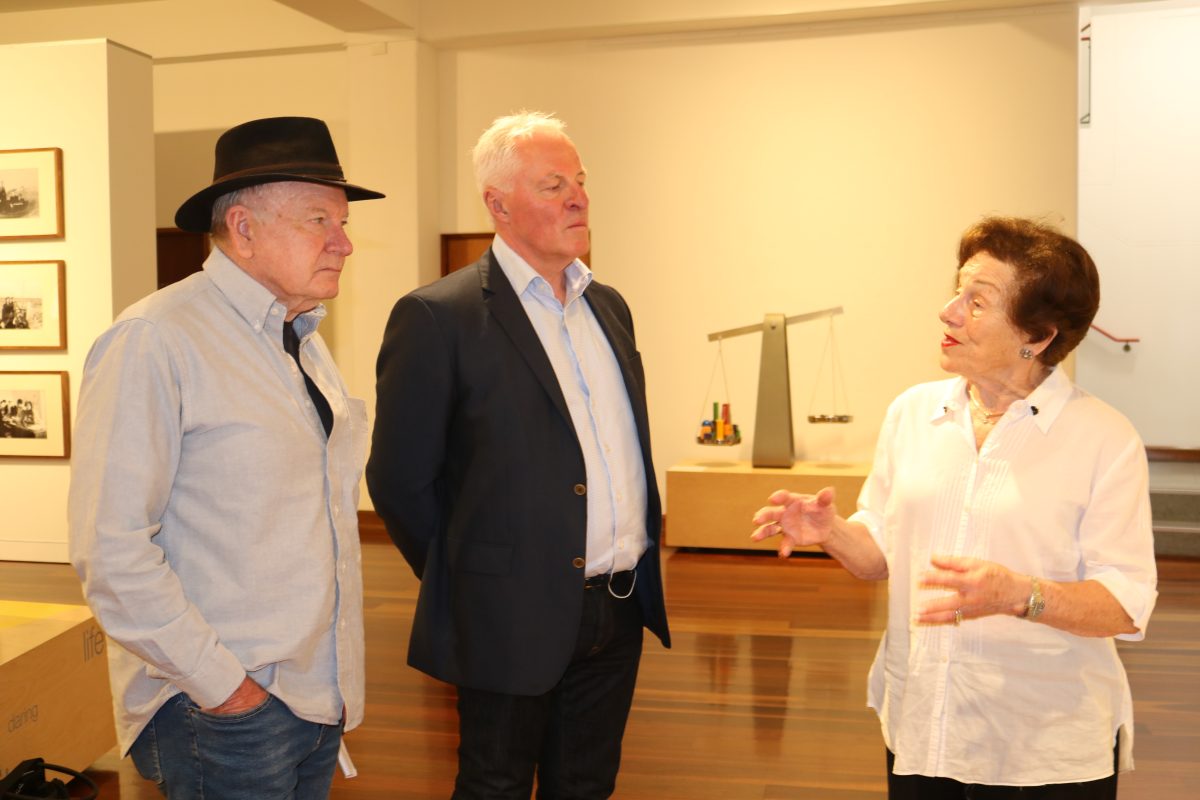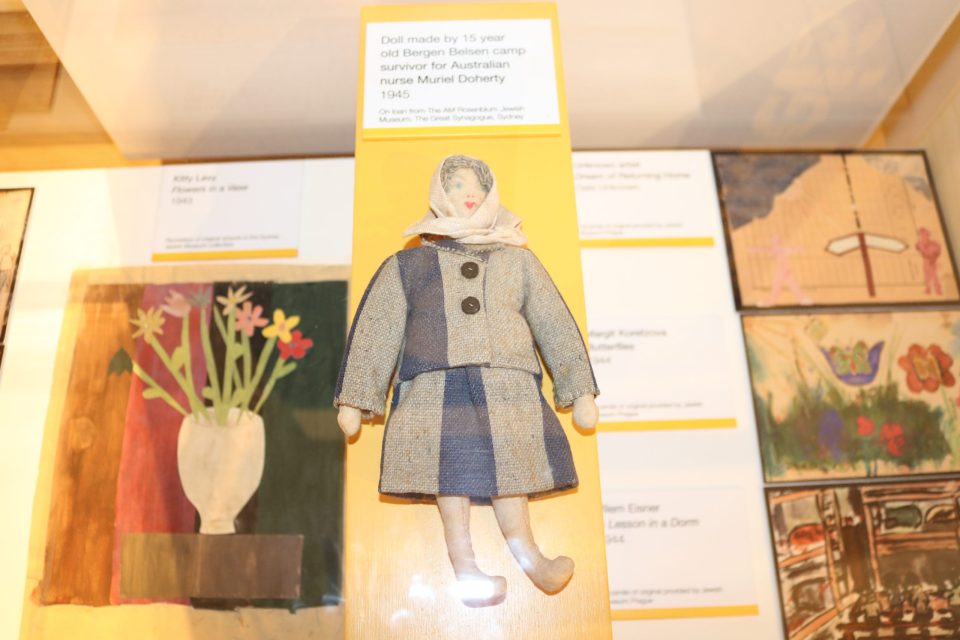
Wollongong Mayor Gordon Bradbery, Courage to Care CEO Ed St John and Holocaust survivor Mimi Wise at the exhibition. Photos: Jen White.
Holocaust survivor Mimi Wise has seen the very worst of human behaviour, but says if not for the care and kindness of complete strangers, she wouldn’t be here to share her story.
Mimi was speaking in Wollongong for the opening of an exhibition that celebrates the courage of people like those strangers, and others who stand up to prejudice and discrimination.
Courage to Care at Wollongong Art Gallery uses inspiring stories of survival from the Holocaust to illustrate the importance of being an upstander – as opposed to a bystander – when confronted by discrimination.
The exhibition also forms part of Wollongong City Council’s commitment to provide opportunities for education and cultural learning about the Holocaust following confirmation last year that Wollongong Art Gallery benefactor Bob Sredersas was considered a Nazi collaborator.
Courage to Care began in 1992 as an initiative of B’nai B’rith, the world’s oldest Jewish Service organisation. Inspired by the many stories of rescue and courage displayed by non-Jews who saved or helped Jews during the Holocaust, the first Courage to Care exhibition was held in the Jewish Museum of Australia in Victoria.
The organisation was established in NSW in 1998 and developed an education program to accompany the exhibition. It has since been delivered to more than 100,000 students in NSW, Queensland and the ACT.
In her talks to high school students, Mimi tells them about her experience of growing up as a Jew in France during World War II.
Mimi was born in Italy in 1937 and moved with her family to France when she was a baby.
She and her parents, grandparents and younger brother Sam were evacuated from Strasbourg, on France’s northeastern border, when Germany invaded the country in 1939.
The family was living in Felletin in central France when they received word they had to leave immediately as their names were on the Gestapo arrest list and police were on their way.
They fled without any personal belongings, and Mimi’s parents escaped in separate directions, each with one of their children, to ensure their own survival and to warn other Jewish people.
For much of the war, Mimi and her family were forced to hide in small country villages to avoid arrest, and at one point she and Sam were separated from their parents.
Mimi said her family was saved because people had the courage to care for them.
“We had people involved, perfect strangers, who helped my family with the smallest things,” she said.
“So I feel duty bound to tell this story because strangers helped us, and at that time, whether they knew it or not, they were risking their lives to help us.
“Here in Australia we’re not risking our lives, we’re helping someone but it’s not at any risk to you.”





“Keep your eyes and ears open to someone who’s being victimised. It could be someone in a wheelchair or with a cast on their hand or something like that. Open the door for them if they struggle,” she said.
“It’s the most minor thing that can be problematic for the other person. We need to have that sensitivity and awareness, we need to help each other.
“Nothing may ever happen in your life – and you hope nothing ever does – that you have to intervene in any way, but if it does, you’re aware that you have the power to be able to give somebody a chance, to stand up from having fallen over.
“So the motto for Courage to Care is – don’t be a bystander, be an upstander – be aware.”
At the exhibition’s opening on Tuesday (3 October) three residents – Christine Williams, Chaplain John Kewa and Nyan Thit Tieu – were recognised as upstanders for living the values celebrated in the exhibition through their deeds and actions.
Courage to Care CEO Ed St John said one of the key themes of Courage to Care was that ordinary people were capable of extraordinary acts.
“In the Holocaust, that often meant risking your own life to save someone else’s – a very extreme example of courage. But people are capable of kindness and empathy in many small ways, and we like to celebrate that too,” he said.
Mimi turned nine years old on the long trip to Australia, arriving on a hot summer day in January 1947. They initially stayed with family in Auburn. Her father spoke “six or seven languages” and her mother spoke several as well, but English was not one of them.
Mimi and Sam went to Auburn Public School, her first formal education in four years. She said at school they were considered “exotic” and the other students wanted to practise their French with them.
“It was only many years later that I realised why people were so nice to us – because we were French!”
Schools and community groups are able to book guided tours of the display, which includes precious historical artefacts and audio-visual elements. For bookings email [email protected].
Courage to Care is at Wollongong Art Gallery, Burelli St, until 26 November.









